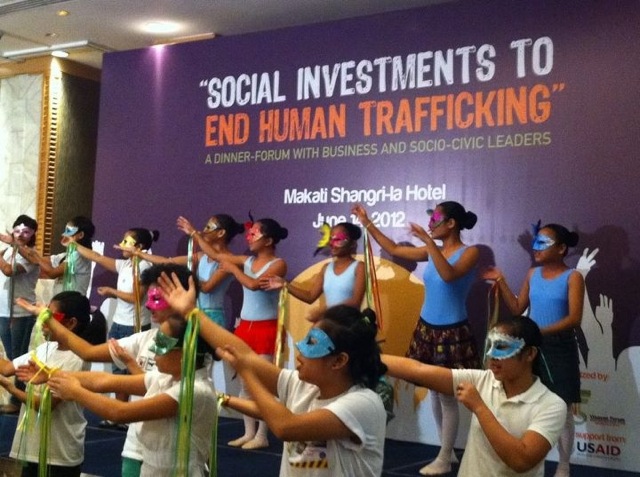
In late May, Prime Minister Stephen Harper hosted a 3-day global conference on maternal health entitled Saving Every Woman, Every Child: Within Arm’s Reach. The global summit took place in Toronto from May 28-30th, 2014. The purpose of the summit was to engage with academics, business leaders, maternal health experts and NGO workers in a global conversation on maternal, newborn and child health. Significant attendees included Jakaya Kikwete, Summit Co-Chair and President of the United Republic of Tanzania, Her Majesty Queen Rania Al Abdullah of Jordan, His Highness the Aga Khan, Ban Ki-moon, Secretary-General of the United Nations, Dr. Jim Yong Kim, President of the World Bank Group, Dr. Margaret Chan of the World Health Organization, Anthony Lake of UNICEF, and Melinda Gates of the Bill & Melinda Gates Foundation.
Last week’s global summit focused on three priority issues. First, getting results for women and children, an effort that focuses on the importance of providing increased support for nutrition through key partners such as the Micronutrient Initiative, the World Food Programme, the World Health Organization and UNICEF. Second, improving global cooperation by calling on a wider spectrum of expertise and resources from traditional partners, local governments, the private sector, civil society organizations and individual citizens. Lastly, taking action on women’s and children’s health, through calling on all summit participants to not only maintain progress on this development goal but also to increase momentum to achieve United Nations Millennium Development Goals 4 (to reduce child mortality) and 5 (to improve maternal health) by the end of 2015.
“Canada believes that eliminating the preventable deaths of women and children in developing countries is within the reach of the international community. I am pleased that the Toronto Summit has been a catalyst for further global action to address these critical issues and keep them front and centre on the international agenda past 2015.” – Prime Minister Stephen Harper
The global summit was organized to renew global momentum regarding the ‘Muskoka Initiative, ’ launched by PM Harper at the G8 Summit in June 2010 to address the significant gaps that exist in maternal, newborn and child health in developing countries. The initiative included such topics as prenatal care, postpartum care, health education, basic nutrition and the treatment and prevention of diseases. Leaders of the G8 nations together with other international organizations committed to $US 7.3 billion in new funding over the next five years.
Over the last few years, the focus on maternal and child health has become the federal government’s central development focus. Though a worthy and well-received cause, critics of the Conservative government and development critics alike question whether the global summit is merely being used to mask the overall large reduction in Canada of foreign aid. Few will forget the shocking announcement made by the federal budget in March 2013 that the Canadian International Development Agency (CIDA) would be merged into the Department of Foreign Affairs and International Trade (now Foreign Affairs, Trade and Development). While members of the federal government have stressed that the merger had more to do with greater policy coherence and will not affect Canada’s future commitment to human rights or development, the merger mirrors the remarriage of the trade and foreign affairs agendas, emphasizing the Conservative’s growing focus on trade policy.

CIDA was created in 1968 with the mission to lead “Canada’s international effort to help people living in poverty.” Regardless of one’s views on the effectiveness of international aid, it is difficult to argue that the merger still meets CIDA’s original mission statement with a $377 million cut in foreign aid and program cuts in countries around the world including Cambodia, China, Malawi, Nepal, Niger, Rwanda, Zambia and Zimbabwe.
Others agree that “Canada’s foreign policy and trade interests should not compromise the purpose of aid — which is poverty alleviation and human rights,” Anthony Scoggins, Oxfam’s director of international programs said in a statement.
Notwithstanding the motives behind the global summit, the conference brings global attention to a worthy and critical need. According to the World Health Organization, every day, approximately 800 women die from preventable causes related to pregnancy and childbirth. Preventable causes include severe bleeding, infections, high blood pressure, unsafe abortions and pre-eclampsia. All these issues are easily avoided through well-known health care practices. Perhaps more uplifting is the fact that between 1990 and 2013, maternal mortality worldwide dropped by almost 50%.
It is often difficult to distinguish between political rhetoric and genuine concern especially in a growing information age where social justice activism has become a ‘sexy’ way of identifying oneself with a particular set of views. Some may argue it is already being demonstrated with this summit as Harper’s prominent commitment to transparency appears to conflict with the public and media’s lack of access to the details of the week’s conference. While Harper’s flagship development policy seems to be making a difference, this country’s future commitment to development seems to be standing on less stable grounds.




